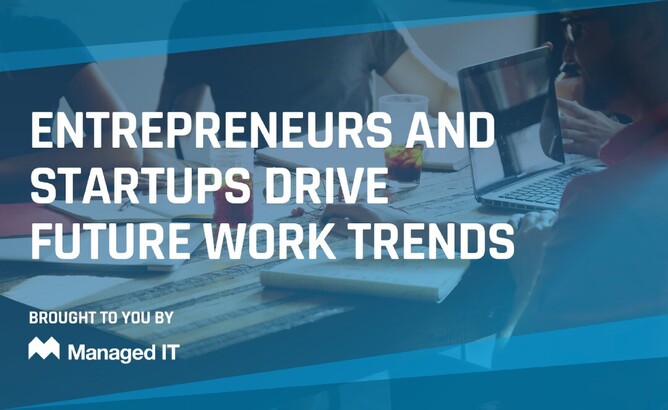Startups. They’re popping up thick and fast and they’re shaking up the way we do business. Startups are highly connected, innovative and they’re not afraid to use the latest technology to benefit their day to day business, customers and their employees.
We’ve identified some of the ways startups are changing the workplaces of today. Take notes – we’ll all need to get on board to stay competitive.
Results Based Work
Startup founders and entrepreneurs are now more and more focused on their employees getting results, and less focused on the time spent obtaining them. Gone are the days where employees must be seen in the office to be ‘working.’ Many startups aim to foster a culture where employees feel empowered to work harder through flexible working hours and conditions. Additionally, many startups reward results based work by paying structured salaries based on these ‘wins’ or results. Here, the intention is to reward those employees who work smarter and concentrate on getting work done so they have more time to spend on leisure, more time to work on bonus objectives or often, stock options.
Flexibility and Productivity
The employment conditions of the industrial era have stuck with us through much of history, but thanks to startups, we’re now starting to see a different way of working. With traditional manufacturing and factory work, staff had to be physically present to operate machinery. Today, a desk and associated equipment (be it laptop, smartphone or tablet) is accessible from virtually anywhere from to park benches, offices and on the go. Most people seek flexible working hours these days – to work without distraction, to save the stress of a long commute, and startups, with the help of cloud based computing and communication platforms mean this is more than just a possibility.
Bring Your Own Device (BYOD)
Not only are employees of startups encouraged to work flexibly, they’re also able to work from the device that suits them the most – their own! Most individuals have a preference as to what equipment they use and where, often favouring tablets and smart phones over lap tops when they’re on the road and travelling. Two factor authentication and other remote login options means employees can access data and information safely and securely from whatever device they are working with.
Cloud Based Collaborative Working & Social Platforms
The rise and rise of startups has also seen the increase in adoption of collaborative social media environments for the workplace, such as Yammer, Slack and Skype. Short, instant messages can be sent quickly and easily, instead of clogging up internal systems and email inboxes. Cloud based programs such as Office365 also mean documents can be worked on collaboratively and edited by different team members in real time.
Independent Employees
In line with seeking more and more workplace flexibility, individuals are also looking to work as independent contractors or in a freelance capacity, instead of in traditional FTE. The rise of the startup means that work is fast becoming a tradable commodity, with people able to move around and other their services to different companies when it suits them. The very culture of startups seems to take on the persona of their entrepreneurial founders – they’re not afraid to take risks and encourage the team around them to do so too. Their success thus far means it’s a lesson for us all – when was the last time you applied real innovation to your business?




